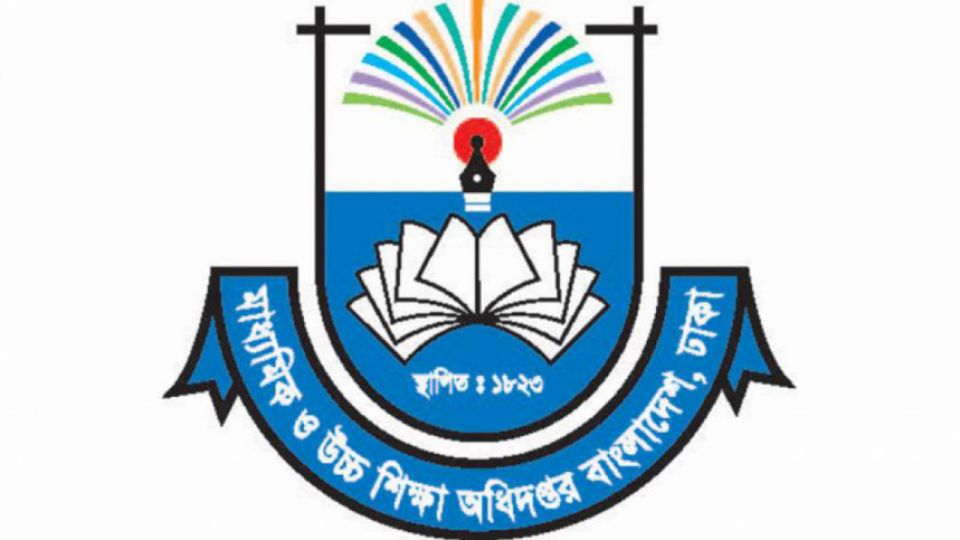November 10, 2022
DHAKA – The government introduced a creative question system for public exams in 2008 but it has still not been able to train 55 percent of the teachers on preparing questions under this method.
About 38 percent of secondary and higher secondary school teachers cannot set question papers under the method, said officials citing a government survey.
Many officials of the Directorate of Secondary and Higher Education (DSHE) believe that there is a direct link between inadequate training of teachers and controversial questions being prepared for public exams.
The DSHE’s latest Academic Supervision Report shows that 62 percent of teachers prepare questions using the creative method.
The report was based on a survey of teachers of 6,784 out of 18,874 secondary and high schools countrywide.
The survey conducted in May found that about 23 percent of the school teachers prepare the questions with the help of other schools and about 15 percent collect questions from other sources.
Some say that they actually buy questions from teachers’ associations, defying government orders not to do so.
Robiul Kabir Chowdhury, who leads Bangladesh Examination Development Unit under the Dhaka education board, said the preparation of questions is a matter of expertise.
A question setter needs to have the ability for critical thinking and analytical and other skills to prepare such question papers, he said.
“If someone does not have deep knowledge on the subject, it is tough for them to prepare questions … it is also tough for untrained teachers,” he added.
Secondary school teachers are trained in preparing questions under the Secondary Education Sector Investment Programme.
Its official said 107,000 teachers have so far had the training. Of them, 67,000 received three-day training until 2017 and 40,000 got six-day training since 2017.
According to the Bangladesh Bureau of Educational Information and Statistics, there are 237,272 teachers in all secondary schools.
DSHE officials said many teachers think their training was inadequate, prompting them to seek help from guidebooks to prepare questions.
Another problem is that the teachers who have been trained do not practise preparing such questions at school.
“Two issues … many teachers lack the capacity to prepare questions under the creative method and many lack adequate training on preparing question. Both are related to each other,” said educationist Prof Siddiqur Rahman.
Prof Siddiqur, also a former teacher at the Institute of Education and Research of Dhaka University and a member of the National Education Policy 2010 Formulation Committee, said there were serious weaknesses in training.
“The duration of training sessions is insignificant. Teachers should be given hands-on training,” he said.
DSHE Director [College and Administration] Prof Shahedul Khabir Chowdhury said training is a continuous process.
“If we increase the number of days of training from six days, we will need many years to complete the training of all teachers,” he said.
Many DSHE officials said inadequate training was related to questionable questions being prepared for public exams, the latest case being the number 11 question of the HSC Bangla first paper exam held on Sunday. The question hurt the religious sentiments of the Hindus.
A question of the technical board’s Bangla second paper exam held on the same day demeaned a renowned prose writer of the country.
Asked about it, technical education board Chairman Ali Akbar Khan said: “You are the first person to tell me about this. If it is true, I will enquire how it happened.
“You cannot do such things. You cannot set questions undermining anyone. There is no right to defame anyone,” he said.
In 2020, there were allegations that an SSC Bangla question was copied from a guidebook.
Meanwhile, Education Minister Dipu Moni after an event in the capital said: “We have to be more careful in assigning the responsibility of question setting and moderating. All boards need to be more alert regarding this.
“Our question setters and moderators are given various training and there is a guideline in place. Even then, if someone does it [prepare questions that create controversy], it is his deliberate negligence,” she said.
Referring to an investigation against teachers who had set and moderated the question on Sunday’s Bangla first paper exam, she said they would decide what kind of action will be taken against them after getting the probe report.


